Crime drama Jodie features Deba Hekmat, maximum tension and minimal dialogue

Jake Hunter
Director Seb Tabe tell us story behind his masterfully-shot true crime short.
Culture
Words: Tiffany Lai
It’s not often you see the sort of talent that could carry a film with just their eyes, but Deba Hekmat in Jodie is just that. She plays the subdued Jodie, a 16-year-old schoolgirl, involved in a dangerous scam led by her older, erratic boyfriend Danny (played by Timothy Innes).
Jodie heads to an older man’s house, Mark (Ricci Harnett) under the pretence of sex work, before drugging him and letting her older, erratic boyfriend Danny (Timothy Innes) in to rob him. Primarily shot inside council flats or cars, the camera often zeros in on Jodie’s face, and her eyes give away the internal struggles she grapples with: trying to find her place in a world that is in constant threat of becoming eclipsed by Danny or her alcoholic dad (Mario Demetriou). With little dialogue, you can’t help but be entranced by the narrative her eyes portray.
“I remember seeing Deba’s image on that Last Swim post and it just clicked in my head,” writer and director Seb Tabe says of tapping the burgeoning actor for the role. At the time, the South London director was watching films with limited dialogue in them, like the Romanian art drama 4 Months, 3 Weeks and 2 Days. “I was like, people talk too much in films,” he says. Inspired by Deba’s emotive gaze, he began to add layers to Jodie’s character and cut out lines of dialogue. “Jodie was a very different character before Deba was cast. She gave a lot of backchat and complained about stuff but [then I thought] I’d love to make a film where everything can be read from the upper half of the face and I knew Deba had it.”
The plot of the tense, 20 minute short is inspired by a true story. Three years ago Seb had seen the face of a boy in the year below him at school in a news article — he’d been jailed for murder after drugging a man he’d solicited on Grindr with a date-rape drug. The boy’s younger girlfriend had then taken the stolen credit cards and attempted to buy diamonds on the black market. “I decided to switch the genders to focus on the girl instead,” he says. “[The news article] didn’t say too much about her so it left me the freedom to fill in the gaps. What’s going on in her life? How did this guy entice her into being involved in such a crazy situation at that age?”
Another alteration Seb made to the story is the addition of Daisy, the 10-year-old daughter of Mark whom Jodie meets at his flat. For the role, Seb cast Summer-Rose Churchhouse, a young actor who, like Deba, emits an unspoken strength and sensitivity on screen. “Summer’s self-tape was one of the best,” Seb says. “She had so much emotional intelligence and depth which is what we needed. [In the film] you can see that Daisy obviously needs to take care of herself.”
We caught up with Seb the week of Jodie’s release at the Prince Charles Cinema Soho to find out what it takes to make an indie film in 2024.
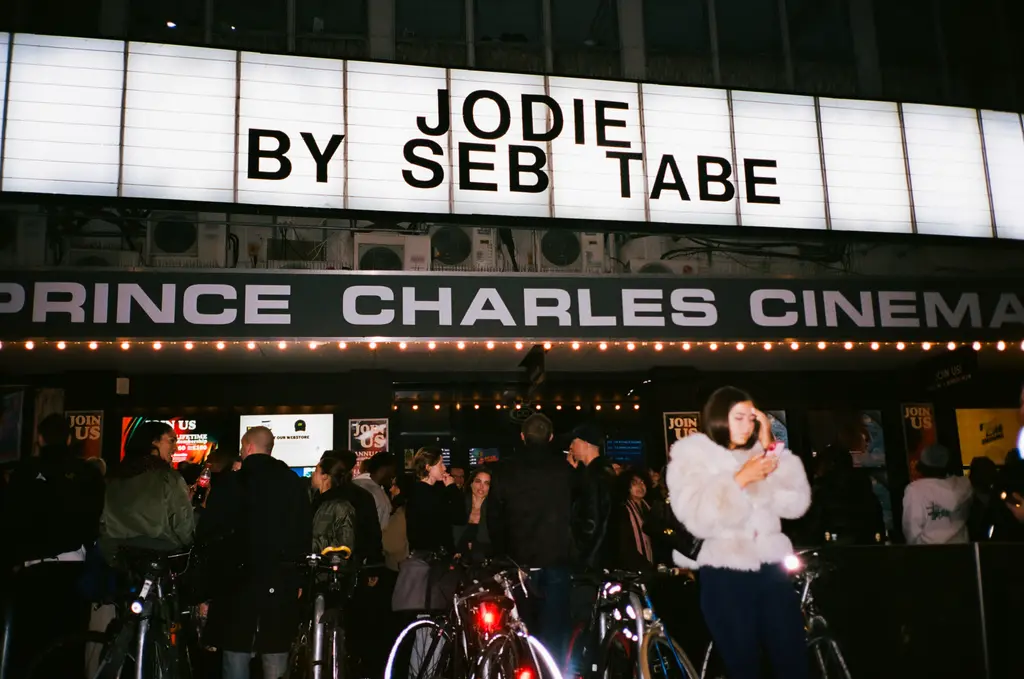
Photography: Sean Anthony
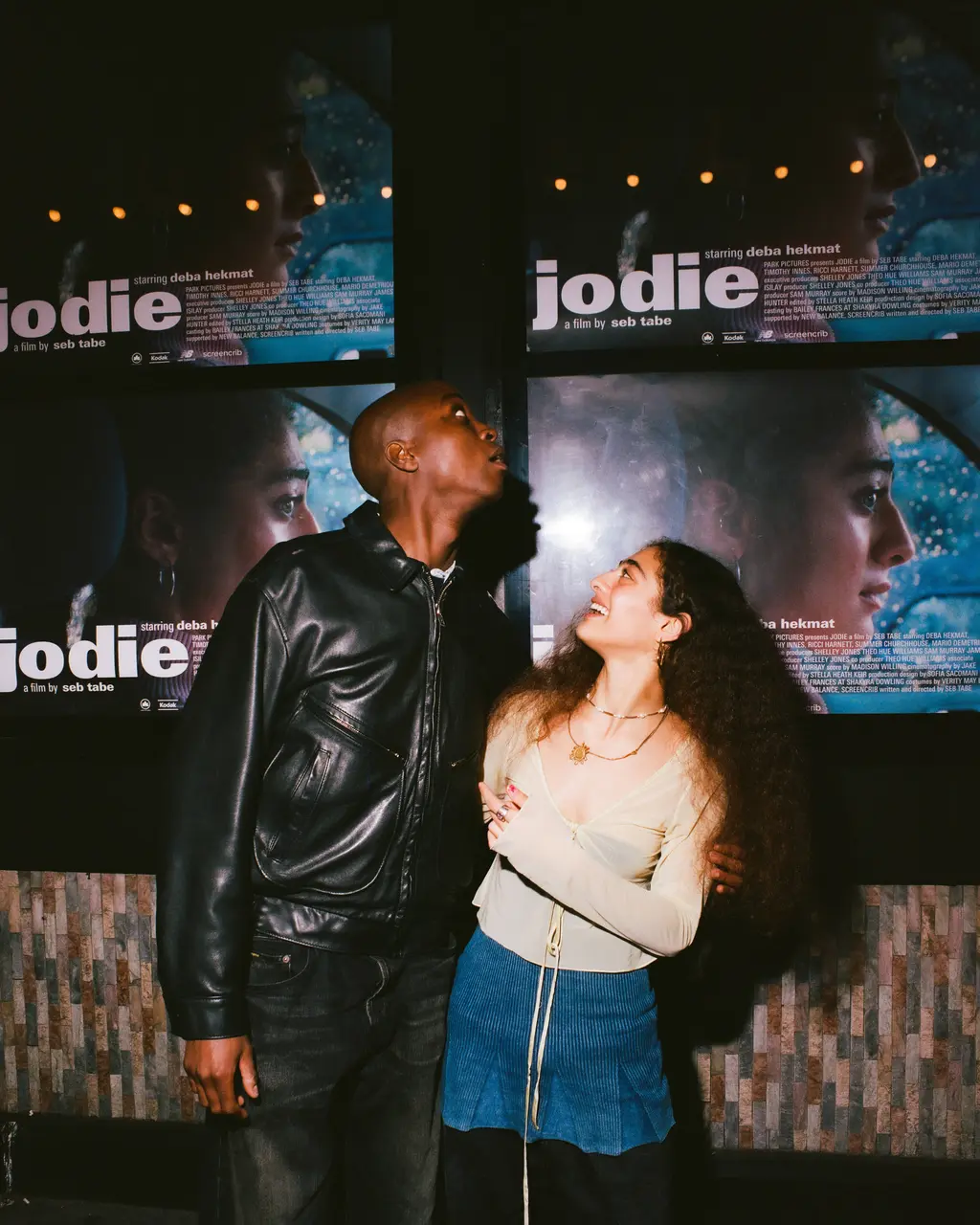
Photography: Sean Anthony
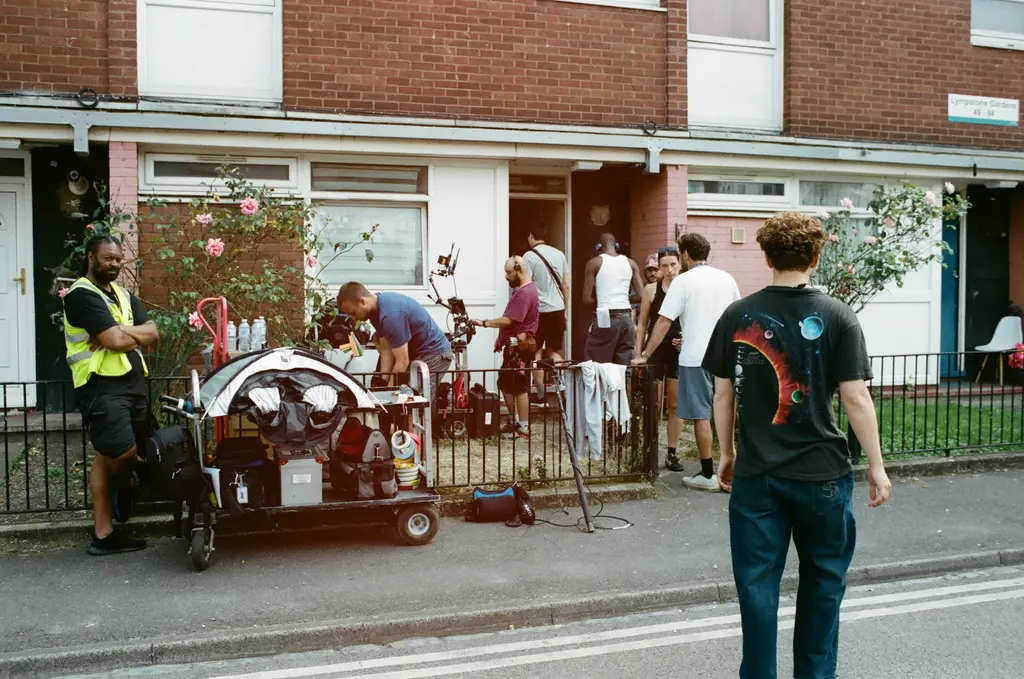
Photographer: Jay Izzard
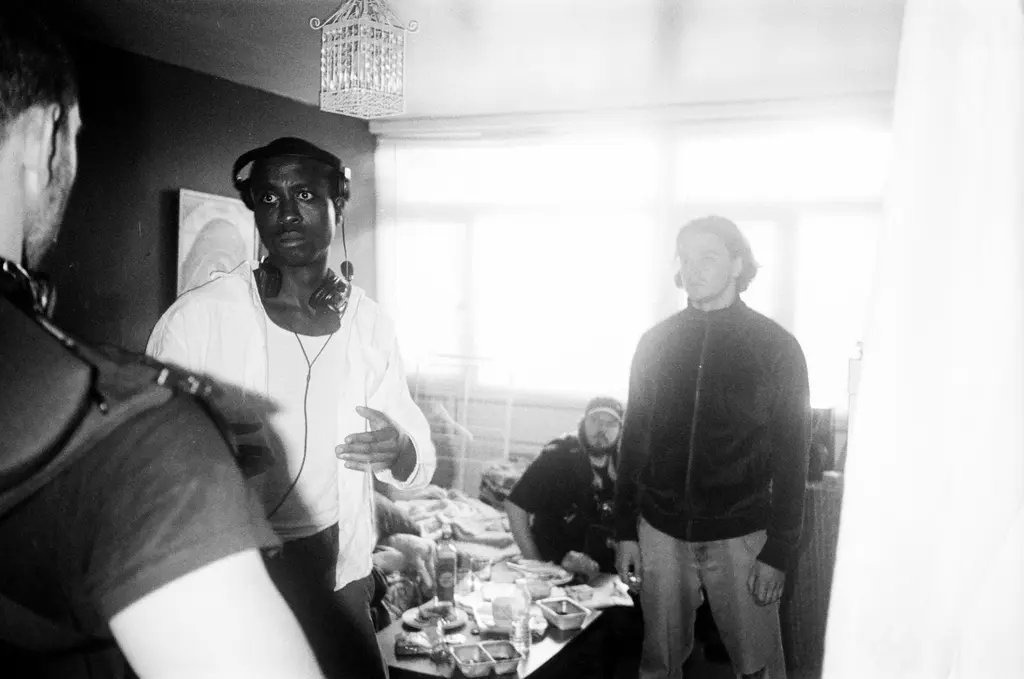
Photographer: Jay Izzard
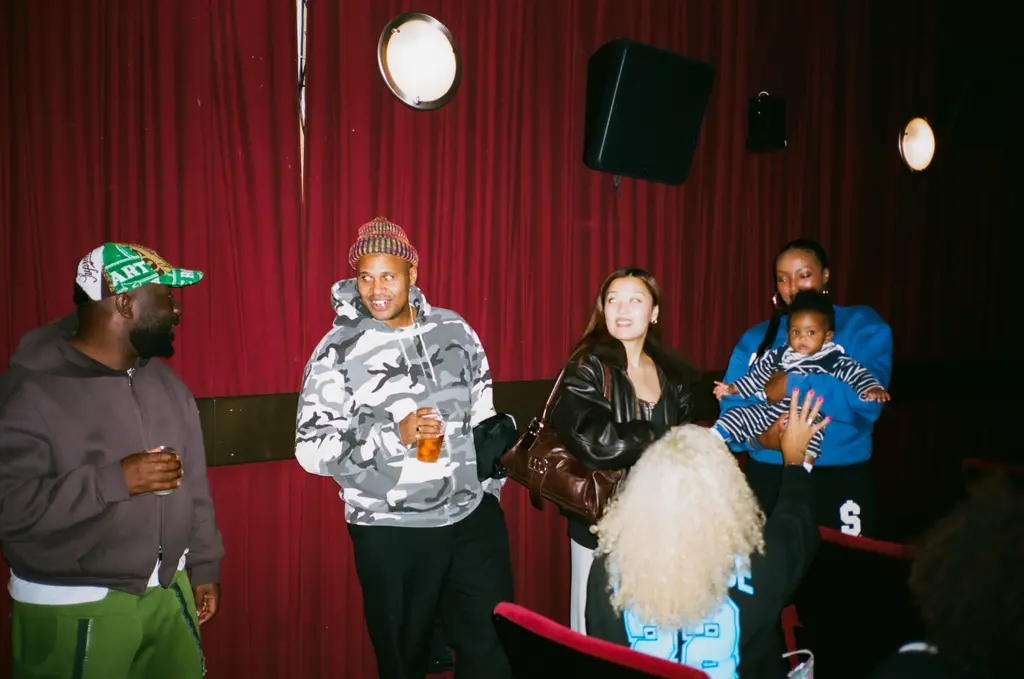
Photography: Sean Anthony
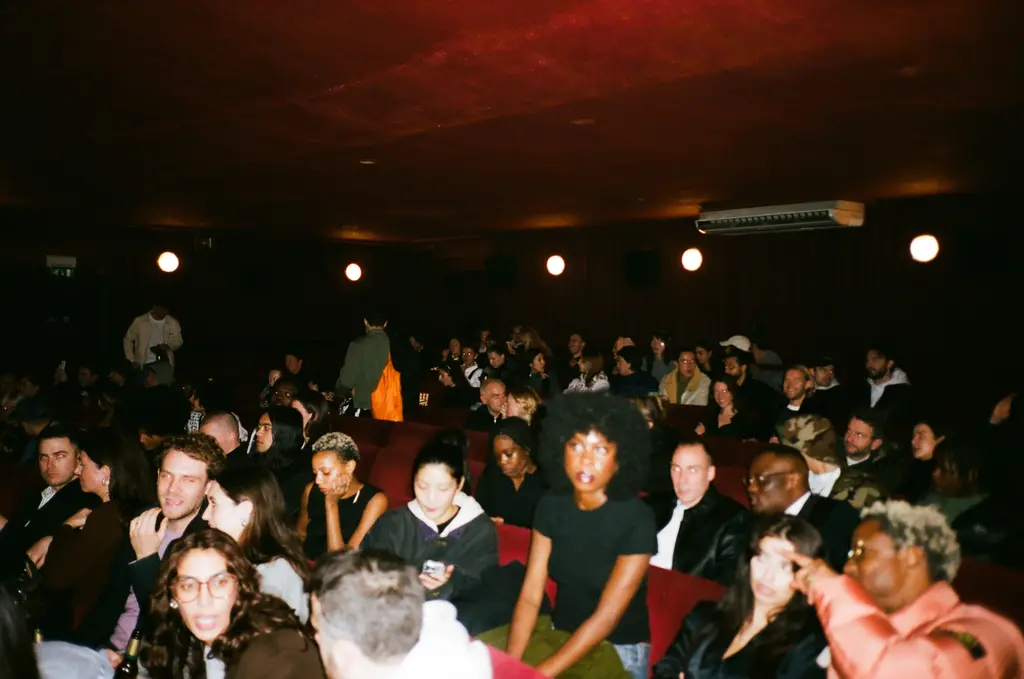
Photography: Sean Anthony
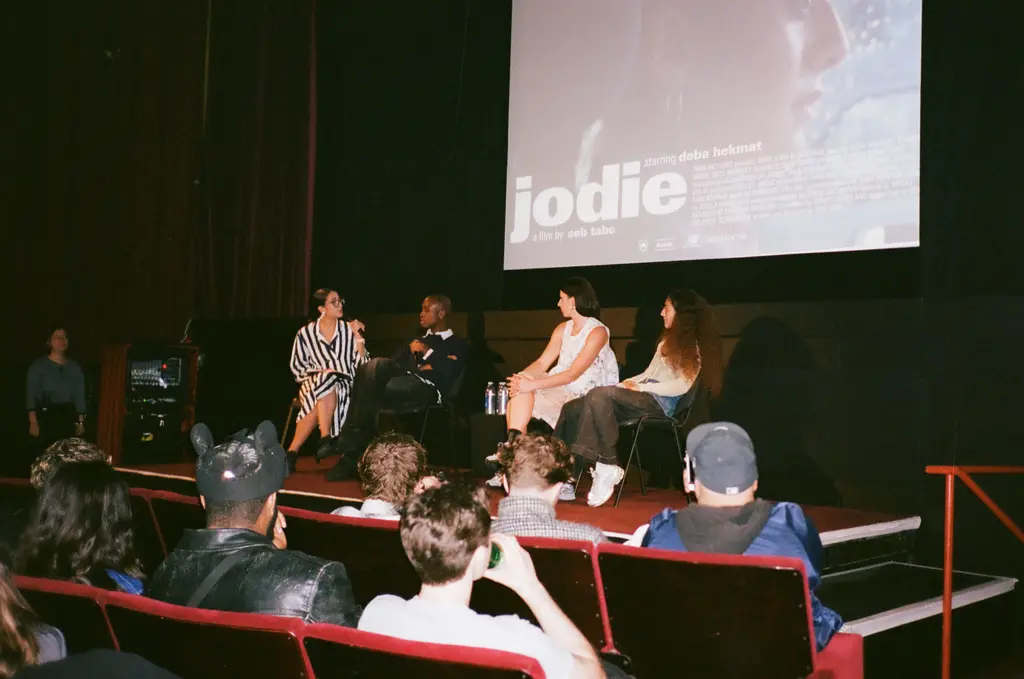
Photography: Sean Anthony
Hey Seb! How did you get into filmmaking?
My earliest memory of filmmaking is probably my GCSE media classes. My media teacher was big on films so we watched the Goodfellas Copacabana film where he’s being tracked all the way through the restaurant and analysed why certain decisions were made – why a scene has been blocked out this way, what’s within the frame, use of colour, sound, everything.
From then until now, I’ve always looked at films in that way, analysing all the decisions [that were made and why]. A few years ago I started making small art films and then just caught the bug and began getting small opportunities, music videos then commercial stuff [with clients like Nike and Adidas].
So much of this film feels like it could only have been set in London, from the locations to Jodie’s outfit. Do you think the city informs your filmmaking?
100%. I could just see it so clearly and I could put myself in those situations and see what decisions the characters made and what they would do just based on my own experiences from growing up in London.
At the screening you mentioned location scouting for places that showed signs of ‘pre-gentrification’. Can you tell us more about that?
When I was 16, that was in the early 2010s, so I wanted the film to have the aura of that time period in a very subtle way. If there was a phone in shot, it would be an iPhone 4 or we would use an old CD player in the car. I didn’t want anything which brought the film into the modern world. If it was based in the present, the film probably would have happened a bit differently; it would have been more technological, there would have been more messaging and less going to places. I wanted [the characters] to be present.
How would you describe Jodie’s personality?
Very calm but complacent. In a way, she’s controlled by the dominating men in her life so she’s quite submissive but there is that moment [in the film] when she actually thinks, wait, let me take my life into my own hands.
From an outside perspective, what she does might look stupid but when I was writing, I was thinking about the mindset of a 16-year-old and you can be really easily influenced at that age. She’s a very trusting person but her awakening is spurred on by seeing Daisy – she sees a mirror of herself and doesn’t want her to go through the same things she did.
What was the process like of building these characters?
We had loads of conversations about their lives… Why they were doing what they were doing, why Mark was at home by himself and inviting a girl over. Which, in my opinion, added a bit of depth to the characters.
The actors also gave their own feedback. In one scene for example, for continuity’s sake I thought it would be easier if Jodie left her bag in the car [when she’s dropped off to Mark’s house] but Deba said ‘no I think she would keep it as a safeguard.’ In the film, she’s almost always holding her bag [as a result].
With scripting, I’d be out and about on buses and I’d listen to conversations of school girls to see if [my flow worked]. It’s a bit different to how I spoke at school but I remember hearing one girl say: ‘School’s so depressing.’ So I added in a line where Daisy says something along those lines.
Who are the filmmakers that inspire you?
The Dardenne brothers, they’re these Belgian directors. Their film Rosetta was a big influence on Jodie as well as British directors like Ken Loach, Lynne Ramsay and Andrea Arnold.
[The French director] Claire Denis is one of my favourites, when I first watched her films I was amazingly struck by the complexity and the elliptical nature of the films as well as [this idea that] you don’t have to explain everything.
When I was younger, all I watched were Hollywood films where everything’s very formulaic and every single thing has to be explained. Claire’s films helped me cut out the fat.
Is there anything that you’re often drawn to in the stories you work in?
There’s a bit of me in every single character. Everything I do or write is always focussed on one person intensely and I’m telling it from that person’s perspective.
What would you like to work on next?
I want to extend Jodie into a feature but I’d also love to go to Cameroon where I’m from and do a film there.








